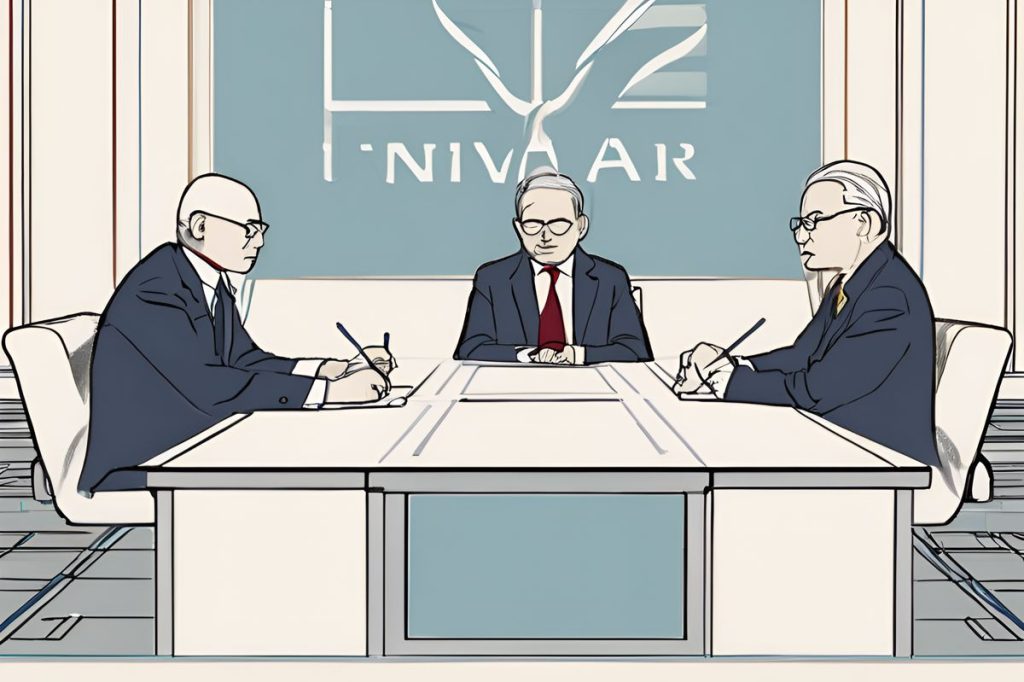Maria Holguin, the UN Secretary-General’s Personal Envoy for Cyprus, will meet with Cyprus’s President Nikos Christodoulides and Turkish Cypriot leader Ersin Tatar to push for progress on the longstanding Cyprus issue through inclusive dialogue with political leaders and stakeholders. The visit is crucial as tensions persist on the island and hopes are high for a potential breakthrough in the quest for a lasting peace settlement.
Who is the UN Secretary-General’s Personal Envoy for Cyprus and what is her upcoming mission?
Maria Holguin, the UN Secretary-General’s Personal Envoy for Cyprus, will meet with Cyprus’s newly-elected President Nikos Christodoulides and Turkish Cypriot leader Ersin Tatar. Her visit aims to advance UN’s efforts in resolving the longstanding Cyprus issue through inclusive dialogue with political leaders and stakeholders.
Diplomatic Engagement
The island of Cyprus, with its complex political landscape, is set to witness a significant diplomatic event. Maria Holguin, the UN Secretary-General’s Personal Envoy for Cyprus, is scheduled for a critical visit. She will be meeting with the newly-elected President Nikos Christodoulides and the Turkish Cypriot leader Ersin Tatar next Wednesday. Holguin’s arrival marks a continuation of the UN’s longstanding commitment to helping find a resolution to the Cyprus issue.
The anticipation for the envoy’s visit is heightened by the recent statements from President Christodoulides, who underscored the importance of the upcoming week for the Cyprus problem. Tensions on the island have persisted for decades, with a split between the Greek Cypriot South and the Turkish Cypriot North.
Broader Consultations
In addition to her meetings with political leaders, Holguin is slated to engage with a wider array of stakeholders. Civil society actors and businesspeople from both communities will have the opportunity to converse with the envoy. This inclusive approach is reflective of the UN’s recognition that any sustainable solution to the Cyprus problem must be supported by those from all walks of life on the island.
The UN’s strategy in Cyprus has often involved engaging with various sectors to ensure a comprehensive peace process. Such meetings may pave the way for increased dialogue and mutual understanding between the two communities, which is essential for any hope of reunification.
Historical Context
The UN’s involvement in Cyprus dates back to 1964 when the UN Peacekeeping Force in Cyprus (UNFICYP) was established to prevent further fighting between the Greek Cypriot and Turkish Cypriot communities. Since then, the UN has played an integral role in mediation efforts, including the Annan Plan in 2004 and talks in Crans-Montana in 2017, which unfortunately ended without an agreement.
The island has been divided since 1974, and the quest for a lasting peace settlement has been a complex challenge. Several rounds of negotiations have taken place over the years, with the UN often mediating these efforts, reflecting the international community’s desire to see a resolution to the conflict.
Looking Forward
The meetings scheduled for next Wednesday with President Christodoulides and Mr. Tatar are awaited with cautious optimism. The significance of the envoy’s visit is underscored by the potential to reignite stalled negotiations and explore new avenues for peace. All eyes will be on Cyprus next week as the island’s leaders and the UN Envoy deliberate on the future of this Mediterranean nation.
What is the purpose of the upcoming visit by the UN Secretary-General’s Personal Envoy for Cyprus?
The purpose of Maria Holguin’s visit is to meet with Cyprus’s President Nikos Christodoulides and Turkish Cypriot leader Ersin Tatar to push for progress on the longstanding Cyprus issue through inclusive dialogue with political leaders and stakeholders.
Who will Maria Holguin be meeting with during her visit to Cyprus?
Maria Holguin will be meeting with Cyprus’s President Nikos Christodoulides and Turkish Cypriot leader Ersin Tatar, as well as engaging with a wider array of stakeholders, including civil society actors and businesspeople from both communities.
What is the historical context of the UN’s involvement in Cyprus?
The UN has been involved in Cyprus since 1964 when the UN Peacekeeping Force in Cyprus (UNFICYP) was established. The island has been divided since 1974, and the UN has played a key role in mediating efforts to find a lasting peace settlement, including the Annan Plan in 2004 and talks in Crans-Montana in 2017.
What is the significance of the upcoming meetings between the UN Envoy and Cyprus’s leaders?
The meetings between Maria Holguin, President Nikos Christodoulides, and Mr. Tatar are significant as they hold the potential to reignite stalled negotiations and explore new avenues for peace in Cyprus. The international community is closely watching these developments in hopes of progress towards a resolution to the longstanding conflict on the island.

